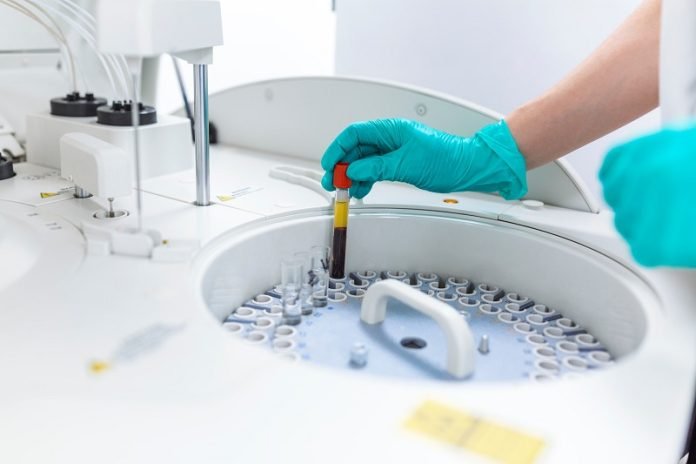
Scientists have discovered that analyzing changes to DNA in the blood can help predict a person’s risk of developing type 2 diabetes within a decade.
This discovery is exciting because it could help doctors and individuals take preventative measures to reduce the risk of developing type 2 diabetes.
The scientists used data from almost 15,000 people to predict the likelihood of developing the condition.
The study, which was supported by experts from universities in Edinburgh, Helsinki, Germany, and Scotland, could reduce the economic and health burden caused by type 2 diabetes.
Traditionally, risk prediction tools for type 2 diabetes use information such as age, sex, BMI, and family history of the disease.
However, researchers from the University of Edinburgh found that the inclusion of DNA methylation data alongside these risk factors provided a more accurate prediction.
Methylation is a chemical process in the body in which a small molecule called a methyl group is added to DNA.
The scientists used their results to estimate the predictive performance using a hypothetical screening scenario of 10,000 people, where one in three individuals develop type 2 diabetes over a 10-year period.
The model that used DNA methylation correctly classed an extra 449 individuals compared with traditional risk factors alone.
The addition or removal of these methyl groups can affect how some molecules act in the body. These methylation patterns can help to track aging processes and development of disease.
Data for the study came from 14,613 volunteers in the Generation Scotland study.
The team also repeated the analyses in 1,451 individuals from a study based in Germany to ensure their findings could be replicated in people from different backgrounds.
More than 4.9 million people live with diabetes in the U.K., with 90 % of those with type 2.
Type 2 diabetes is a serious condition where the insulin a pancreas makes cannot work properly, or a pancreas cannot make enough insulin.
This can lead to high blood sugar levels and, in turn, a range of health issues such as heart diseases and stroke, nerve damage, and foot problems.
The study’s findings are promising because delaying the onset of type 2 diabetes is important since diabetes is a risk factor for other common diseases, including dementias.
The team says that similar approaches could be taken for other common diseases to generate broad health predictors from a single blood or saliva sample.
Generation Scotland is currently recruiting volunteers and has recently opened to young people aged between 12 and 15 for the first time.
The more people that join the study, the more precisely scientists can identify signals that will help delay or reduce the onset of diseases as we age.
Signs of type 2 diabetes
Type 2 diabetes is a serious condition where the insulin a pancreas makes cannot work properly, or a pancreas cannot make enough insulin.
This leads to high blood sugar levels and, in turn, a range of health issues such as heart diseases and stroke, nerve damage, and foot problems.
Some common signs and symptoms of type 2 diabetes include:
- Increased thirst and frequent urination
- Feeling more hungry than usual
- Feeling tired and fatigued
- Blurred vision
- Slow healing of cuts and wounds
- Numbness or tingling in hands or feet
- Itchy skin or yeast infections
- Dark patches on the skin
It’s important to note that not everyone with type 2 diabetes experiences all of these symptoms, and some people with the condition may not have any noticeable symptoms at all.
It’s crucial to get regular check-ups with a healthcare provider to monitor blood sugar levels and other risk factors for type 2 diabetes.
If you care about diabetes, please read studies about berry that could help prevent diabetes, obesity, cancer, and this surgery could ‘cure’ type 2 diabetes.
For more information about diabetes, please see recent studies about drinks that could make type 2 diabetes less deadly, and results showing this small habit can make big progress in diabetes control.
The study was conducted by Catalina Vallejos et al and published in Nature Aging.
Copyright © 2023 Knowridge Science Report. All rights reserved.



